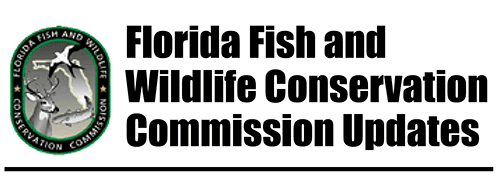Gov. Scott reduces cost of Lifetime Sportsman’s License
Governor Rick Scott signed an executive order in November 2014 authorizing the Florida Fish and Wildlife Conservation Commission to offer Lifetime Sportsman’s Licenses for Florida children and young adults at a greatly reduced cost. The license now costs up to $1000 but from Nov. 24 through Dec. 31, 2014, the price will be reduced to $500 for Florida residents who are 21-years-old and younger. The lifetime license covers saltwater and freshwater recreational fishing, hunting and most associated permits.
Governor Scott said, “Our state’s natural treasures give families wonderful opportunities for both fishing and hunting from the Panhandle to the Keys. This Lifetime Sportsman’s License will provide Florida’s youth with the opportunity to spend time outdoors with their families. Fishing and hunting are time-honored traditions in our state, and I encourage all Floridians to spend some time enjoying the great outdoors.”
A Lifetime Sportsman’s License allows fishing and hunting in Florida for the rest of the license holder’s life, even if that person is no longer a resident of the state.
The license may be purchased at all Florida county tax collectors’ offices, online at License.MyFWC.com and by calling toll-free 888-FISH-FLORIDA (888-347-4356). Residency must be verified. For more information about a Lifetime Sportsman’s License and this limited time offer, visit http://myfwc.com/license/recreational/lifetime-licenses/.
Boaters encouraged to slow down as manatees start their swim to warmer waters
The annual migration of Florida manatees to warmer waters began in November.
FWC encourages boaters to help protect migrating manatees by looking out and slowing down for these aquatic mammals that often rest or congregate underwater and can be difficult to see.
Anyone who spots a manatee that is injured, entangled in fishing line or otherwise in distress can help initiate a rescue by calling the FWC’s Wildlife Alert Hotline at 888-404-3922.
On their annual trek, manatees, including mothers and their calves, swim along Florida’s many rivers, bays and coastal areas in search of the warmer, more stable temperatures found in freshwater springs, man-made canals and power plant outflows. Unlike dolphins and other marine mammals, manatees do not have true blubber to insulate them from waters below 68 degrees Fahrenheit, so they must find warmer waters during their migration to survive the winter cold.
Despite their size, with adults weighing 1,000 pounds on average, manatees can be difficult to spot. That is why it is important for boaters in Florida, including those using personal watercraft, to slow down to prevent collisions with manatees, particularly in shallow areas or posted manatee protection zones. On Nov. 15, many seasonal manatee protection zones around the state go into effect. For manatee protection zones by county, including the seasonal changes, go to MyFWC.com/Manatee, and click on “Data and Maps.”
Tips for spotting manatees:
• Wear polarized sunglasses when boating.
• Look for circular patterns on the water’s surface – the so-called “manatee footprints” that indicate a manatee’s presence below.
• Be careful when boating near shallow seagrass beds, where manatees like to graze.
• Watch for posted signs indicating manatee protection zones and appropriate boating speeds.
• Find out about great places in winter to watch manatees by going to MyFWC.com/Manatee and clicking on “Where Can I See Manatees in Florida?”
Learn more about manatees at MyFWC.com/Manatee, where you can find “A boater’s guide to Florida manatees” and other information.
Approaching Atlantic Closures
• Snook: December 15-January 31, excluding Monroe County
• Golden Tilefish and Snowy Grouper: Closed through December 31.
• Grouper (includes gag, black, red, scamp, rock hind, red hind, coney, graysby, yellowfin, yellowmouth and tiger): January 1-April 30, including Monroe County.
